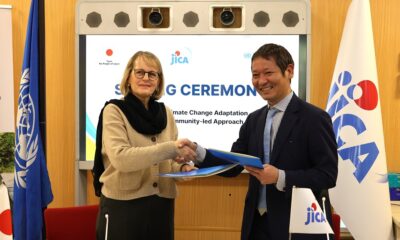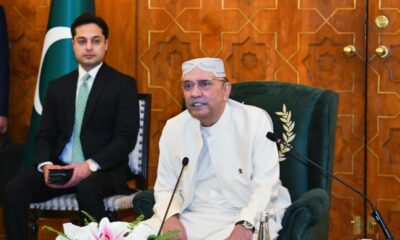Latest News
Afghanistan’s poppy cultivation falls by 85% under IEA rule
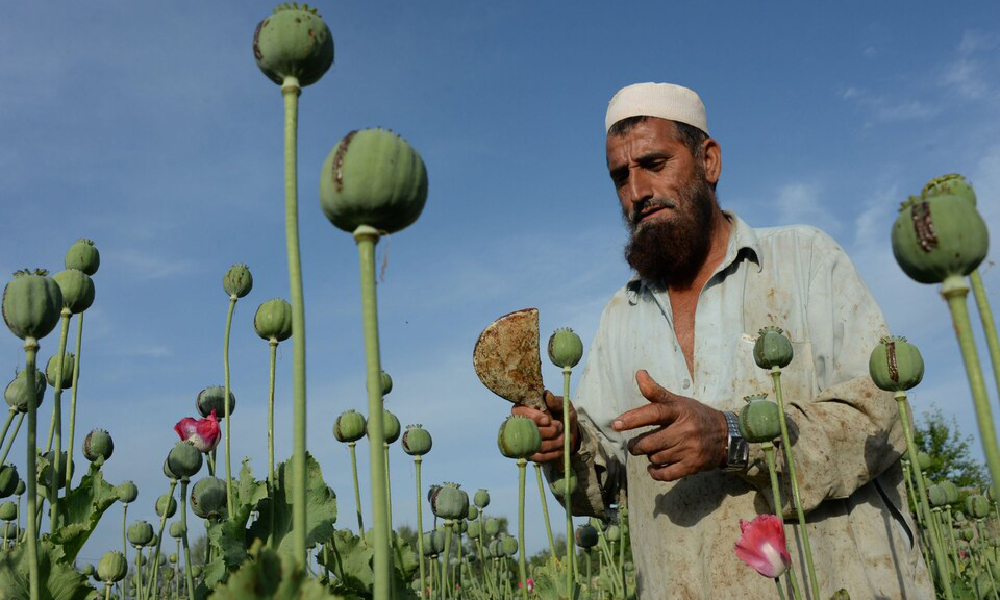
Poppy cultivation in Afghanistan has reportedly dropped by 85% following the return to power of the Islamic Emirate, new analysis shows.
In April last year, the IEA’s supreme leader issued a decree prohibiting poppy farming across the country. Almost 18 months later, the ban is being described by experts as “the most successful counter-narcotics effort in human history”.
Nationwide poppy cultivation is below 30,000 hectares for 2023, compared to more than 210,000 hectares in 2022, according to satellite imagery analysis from Alcis, a geographic information services company, the UK-based Telegraph reported.
Helmand, Farah and Nimroz have recorded the greatest reductions in cultivation, at 99, 95 and 91 percent respectively, Alcis said.
“There is now little doubt that farmers across vast swathes of the country abandoned opium production this year,” the analysis said.
After a year-long ban, experts are waiting to see if the IEA’s edict will last for a second season, which starts each November with the planting of poppy seeds.
“We are in uncharted waters,” said Dr David Mansfield, a UK expert on illicit economies in Afghanistan, in comments that accompanied Alcis’ analysis, the Telegraph reported.
Graeme Smith, an Afghanistan expert at Crisis Group, told the Telegraph in July that the IEA’s crackdown has so far been “the most successful counter-narcotics effort in human history, according to the volume of drugs taken off the market”.
However, Mansfield said there “is already considerable evidence that the current ban has not been uniformly accepted by the rural population or by those within the Taliban’s own ranks responsible for implementing it.”
Alcis’ analysis shows that poppy cultivation increased from 13,803 hectares to 15,391 hectares in the mountainous Badakhshan province throughout 2023. It said there has also been “persistent cultivation in the upper reaches of the mountains of southern Nangarhar”.
“When the economic impact of a ban on poppy cultivation is felt collectively across a growing population, local resistance can quickly escalate, prompting those in the districts responsible for enforcement to retreat, unwilling to impose further losses on their own families, neighbours, and communities,” said Mansfield.
It’s estimated the Taliban’s poppy ban has wiped out the equivalent of 450,000 full-time jobs in agriculture – a major hit to an economy still reeling from drought, conflict and cuts to development programmes.
Latest News
Pakistan president claims situation in Afghanistan is ‘similar to or worse than pre-9/11’’

Pakistan’s President Asif Ali Zardari has warned that the presence of militant groups in the region poses risks to global peace, and repeated Islamabad’s concerns regarding what it describes as the activities of “terrorist organisations operating from Afghanistan.”
Zardari made the remarks in a statement issued Sunday, as he thanked world leaders for expressing solidarity with Pakistan following the recent attack on an imambargah in Islamabad, which left dozens dead and many others wounded. The incident was claimed by Daesh militant group.
According to the statement from the President’s Secretariat, Zardari said Pakistan remains committed to combating terrorism and stressed that no single country can address the threat alone.
“Pakistan has long maintained that terrorism cannot be confronted by a single country in isolation,” he was quoted as saying.
Citing Pakistan’s experience, he said in the statement that whenever “terrorist groups are allowed space, facilitation or impunity beyond national borders, the consequences are borne by innocent civilians all over the world.”
Zardari further claimed that the situation in Afghanistan under the Islamic Emirate authorities has created conditions “similar to or worse than pre-9/11,” and said this has influenced security developments across the region. IEA has repeatedly rejected such allegations, insisting that Afghan soil is not used against any country.
Latest News
Fazlur Rehman: Afghanistan’s economic situation is better than Pakistan’s
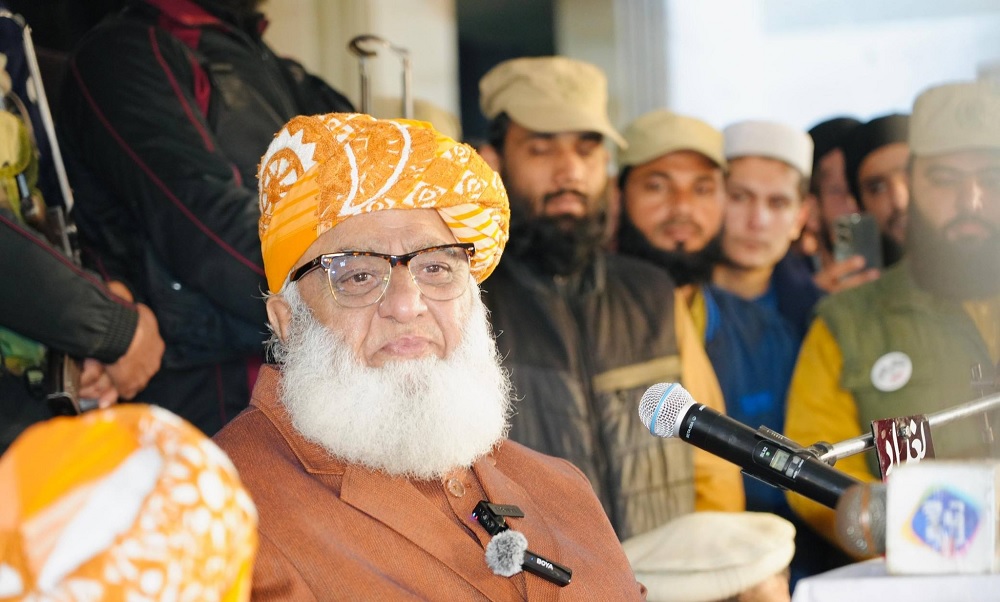
Maulana Fazlur Rehman, the leader of Pakistan’s Jamiat Ulema-e-Islam (JUI-F), has said that Afghanistan’s economic situation has become better than Pakistan’s, as Pakistan faces deepening financial hardship and increasing emigration.
Speaking at a gathering in Rawalpindi, Fazlur Rehman warned that business activity in Pakistan is collapsing and that many Pakistanis are leaving the country in search of stability. He sharply criticized Islamabad’s policies toward Afghanistan, describing them as “complete failures.”
Addressing Pakistan’s repeated claims that militants enter from Afghan territory, he said: “Authorities say terrorists are coming from there. If they are coming, stop them. If they are coming, eliminate them. The Afghan government has never objected to your actions.”
He also rejected the logic behind these allegations, pointing to the closure of key crossings between the two countries: “When not even a single pomegranate can enter Pakistan from Afghanistan today, how can militants enter?”
Fazlur Rehman argued that Pakistan’s foreign policy is shaped not by the civilian government, but by the military establishment: “One general comes and says we will negotiate; another comes and says we will wage war.”
Pakistani officials have long claimed that attacks inside Pakistan are planned from Afghan soil. The Islamic Emirate of Afghanistan has consistently denied this, saying Afghanistan cannot be blamed for Pakistan’s internal security failures.
Latest News
Tajik foreign minister urges international community to help Afghanistan address its challenges

Tajikistan’s Minister of Foreign Affairs, Sirodjiddin Mukhriddin, has called on the international community to step up assistance for Afghanistan as the country continues to face challenges.
Speaking at a press conference, Mukhriddin said Tajikistan and Afghanistan maintain active coordination between their law enforcement agencies to prevent security incidents along their shared border. He noted that this cooperation remains essential, as the frequency of armed attacks and criminal activity in border regions has increased in recent months.
He said that Afghan authorities had assured Tajikistan they would take necessary measures to stop further incidents and would conduct thorough investigations into any violations.
Mukhriddin emphasized that Tajikistan supports constructive international engagement aimed at improving Afghanistan’s socio-economic conditions. He highlighted that Tajikistan has provided more than 6,000 tons of humanitarian aid to Afghanistan, including food and essential supplies delivered in 2025 to assist communities affected by devastating earthquakes.
The minister also pointed to growing economic cooperation between the two neighbors. Tajikistan has reopened border markets and continues to supply electricity to Afghanistan.
Tajikistan and Afghanistan share a border of more than 1,300 kilometers—over 1,100 km of which consists of waterways and about 190 km of land boundaries.
Meanwhile, Zafar Samad Director of the Drug Control Agency under the President of the Republic of Tajikistan, has said that last year, 17 incidents of clashes happened with drug smugglers along the border with Afghanistan. As a result, two Tajik forces and 10 Afghan nationals have been killed, he added.
-

 Latest News2 days ago
Latest News2 days agoAfghanistan to grant one- to ten-year residency to foreign investors
-

 Latest News4 days ago
Latest News4 days agoTerrorist threat in Afghanistan must be taken seriously, China tells UNSC
-

 Latest News5 days ago
Latest News5 days agoUzbekistan, Pakistan advance Trans-Afghan railway project
-

 Sport5 days ago
Sport5 days agoWinter Olympics finally underway, ATN to broadcast exclusively across Afghanistan
-

 Sport5 days ago
Sport5 days agoAfghanistan beat West Indies in final T20 WC warm-up match
-

 Sport3 days ago
Sport3 days agoIndonesia shock Japan to reach historic AFC Futsal Asian Cup final
-

 Sport4 days ago
Sport4 days agoMilano Cortina 2026 Winter Olympics: What You Need to Know
-
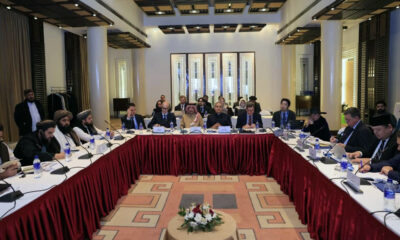
 Latest News5 days ago
Latest News5 days agoAfghanistan hosts 4th Doha Process Counter-Narcotics Meeting, highlights progress






